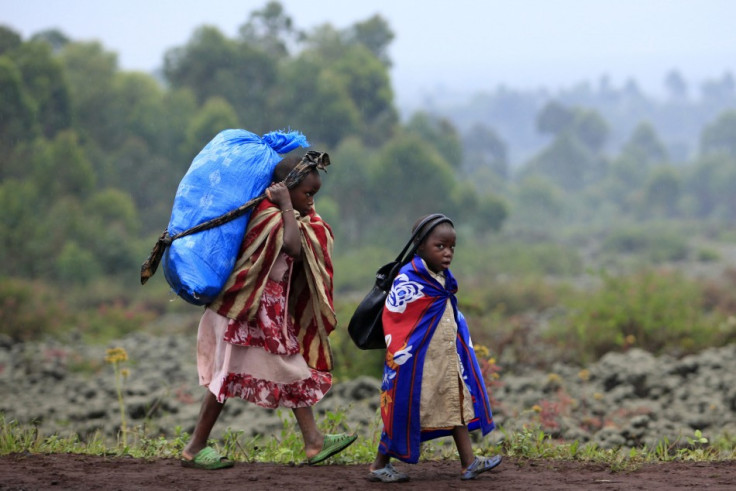Eastern Congo: Thousands of Children Threatened by Violence, Disease and Sexual Assault
More than 25,000 children living in makeshift camps are in danger as violence increases, warns the charity War Child.

Thousands of children are at immediate risk of disease, starvation and violent attacks in the Eastern Congo, a charity has warned.
More than 25,000 children are living in makeshift camps across the region and are currently in serious need of aid, according to War Child.
Hundreds of thousands of Congolese families have fled the area around North Kivu and Goma, following renewed clashes between the M23 rebel movement and the National Congolese army.
According to War Child's Child Protection Alert, the response of the UN and international community has fallen short and represents a "fatal pause in care and protection".
The UN estimates that there are at least half a million displaced people in the North Kivu region of the Democratic Republic of Congo, with as many as 50,000 living in camps. As many as 275,000 children are estimated to have been affected by the conflict.
According to War Child, the UN refugee agency UNHCR's mandate means that it will not be able to meet the needs of the displaced population in the camps until October, when the wet season will be at its height.
"The [situation] is an all-out emergency in a country already in the midst of one of the worst humanitarian crises in the world," said War Child chief executive Rob Williams.
"If the UN and the International community do not act ahead of the rainy season, many thousands of people, including unaccompanied children, may die. Children in particular face the immediate health risks from lack of food and unclean drinking water, on top of which, insecure living environments make them acutely at risk of serious violations including exploitation and sexual violence."
Action needed
The charity is calling on the international community to take immediate action to identify those children most in need of help.
One child, interviewed by charity workers in a camp, said: "We have received no food, no shelter, we've been in the camp almost one month... we are eating just a little, once a day... I think I have food for just another four days. I do not know where my family is, we are alone here in this camp."
War Child claims child protection support is needed, while appeals should be made for donors to provide more financial aid.
One child, named Francine, told the charity: "One evening there was a lot of gunfire and we ran away. Gun shots and bombs went off and my mother fell down in front of me. A bullet had gone into her chest.
"She took my hand [still lying on the ground] and told me to run. We had to leave my mother there - they told me she was dead. When I think of her I cry - I hurt."
Escalating Violence
Conflict in the region escalated in April when a group of army deserters branded themselves the M23 Movement and rebelled in search of better pay, better weapons and amnesty from war crimes.
It is understood that the violence represents a continuation of the conflicts inherent in the 1994 Rwandan genocide. Hundreds of soldiers that participated in the slaughter escaped to the Congo, where they continue to fight.
The M23 rebels were formed from a group of Congolese Tutsi, who were set up to fight Rwanadan Hutu rebels in the Congo.
Congo's foreigh minister, Raymond Tshibanda N'tunga Mulongo, said: "We think there may not be any need for fighting.
"When we say that we want the eradication of this movement, let's say it clearly, as far as we're concerned that doesn't mean killing people.
"We're asking that they cease to exist as a movement, as an ideology, and we think that can be achieved if there is a resolute force that's prepared to use force if these people do not stop. But I think with that alternative before them, they will stop."
© Copyright IBTimes 2025. All rights reserved.




















